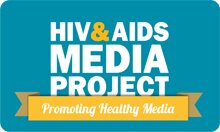 |
10-16 August 2012—HIV News Update.
Featured:
- M&G considers HIV as one of the silent drivers of Lonmin unrest: While the finger-pointing between Lonmin, worker’s unions and police has been centre stage as the nation tries to come to grips with the most immediate causes of the massacre, Mail&Guardian has considered the long-seething “social ills” at the heart of the saga, including the high HIV prevalence in the platinum belt.
- Government & media make exclusive breastfeeding boob: A rash of supplements, ads and articles promoting exclusive breastfeeding raises questions around the Government and the media’s too-little-too-late response to the state’s now one-year-old exclusive breastfeeding policy.
- Move! leaves HIV out of GBV: A Move! magazine special report (15 August 2012) listing and detailing crimes committed against women in the run-up to Women’s Month, fails to nail down the well-established links between gender-based violence (GBV) and HIV.
In the news:
- Women must be entreprenurial to be free (The New Age)
- Protecting road workers (TNA)
- Aids conference refects new hope (M&G)
- SA must invest in UN's 8 Millenium Development Goals (Sunday Independent)
- Fresh views on HIV/Aids (City Press)
- SA link exposed in drug scam (Sunday Times)
- ARV 'bandits' terror spree (TNA)
- Keep your vagina healthy (Move!)
- HIV update: The Berlin patient (DRUM)
|









